A car may lose power when the AC is on due to the compressor using extra energy. When the AC is turned on in a car, the compressor that is responsible for circulating refrigerant through the system turns on as well.
The compressor puts an additional load on the engine, which can cause it to lose power and run less efficiently. This can be exacerbated by other factors, such as a clogged air filter or dirty spark plugs. It’s important to have regular maintenance checks performed on your vehicle to maintain its optimum functioning.
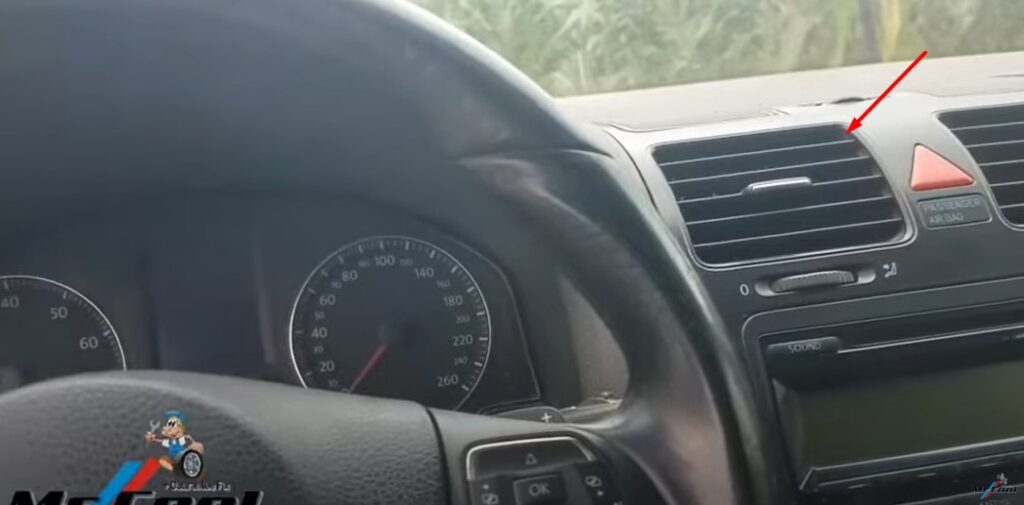
Understanding The Interaction Between Car Engines And Air Conditioning Systems
Have you noticed that your car seems to lose power when the AC is on? This is a common issue that many drivers experience. The AC system in your car adds extra strain on your engine, which can cause it to lose power.
Understanding how your car’s engine and ac system interact can help you better diagnose and fix these issues.
Exploring Hermetic Compressors
One of the main components of your car’s AC system is the compressor. There are two types of compressors: hermetic and non-hermetic.
Hermetic compressors are most commonly used in cars. Here’s what you need to know:
- Hermetic compressors are smaller and more compact than non-hermetic compressors, making them ideal for use in cars.
- They operate using a sealed system that prevents refrigerant leaks.
- Hermetic compressors use a motor to drive the compressor pump, which can cause additional strain on your car’s engine when the AC is running.
Examining How Hermetic Compressors Affect Cars’ Engines
The way hermetic compressors are designed can have a significant impact on your car’s engine. Here’s how:
- Hermetic compressors use a significant amount of electricity from your car’s alternator to operate. This can cause the alternator to work harder, which puts additional strain on your engine.
- When the AC is on, the compressor adds extra load to your engine, which can cause it to lose power.
- Compressors that are not functioning correctly can also cause issues with your car’s engine, such as low power or stalling.
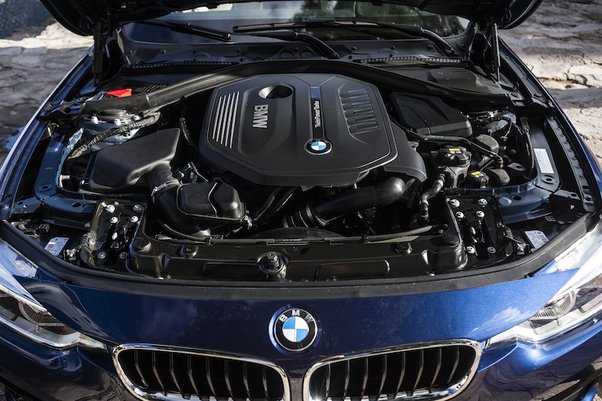
Looking At Alternator Issues
As we mentioned earlier, the alternator in your car is responsible for providing the electricity necessary to power the AC system’s compressor. Here are some common issues that can arise with alternators:
- When the alternator is not working correctly, the AC system may not function at all, or may only work intermittently.
- A failing alternator can cause issues with your car’s electrical system, which can lead to problems with other components in your car.
- If you notice that your car has low power when the AC is on, it’s possible that the alternator is not providing enough electricity to power the compressor.
The AC system in your car can cause it to lose power due to the additional strain it puts on your engine. Understanding how the different components of your car’s AC system interact can help you diagnose and fix any issues you may be experiencing.
Keep an eye on your car’s alternator and the condition of the compressor to ensure that your a/c system is functioning correctly.
Identifying The Causes Of Power Loss In Car Engines When The Ac Is Turned On
Does your car feel sluggish when you have the AC on? Don’t worry; you’re not alone. Many drivers experience a drop in power when the air conditioning is turned on. In this section, we will look at the common causes of power loss in car engines when the AC is turned on and how to identify them.
Malfunctioning Alternators
The alternator powers the electrical systems of your vehicle and recharges the battery. When the ac is on, it uses more power, which can put extra strain on the alternator. Here are some signs of a malfunctioning alternator:
- Dimming headlights
- Dashboard warning lights coming on
- Whining noise coming from under the hood
- Burning rubber smell
If you experience any of these symptoms, it’s best to take your car to a trusted mechanic for a proper diagnosis.
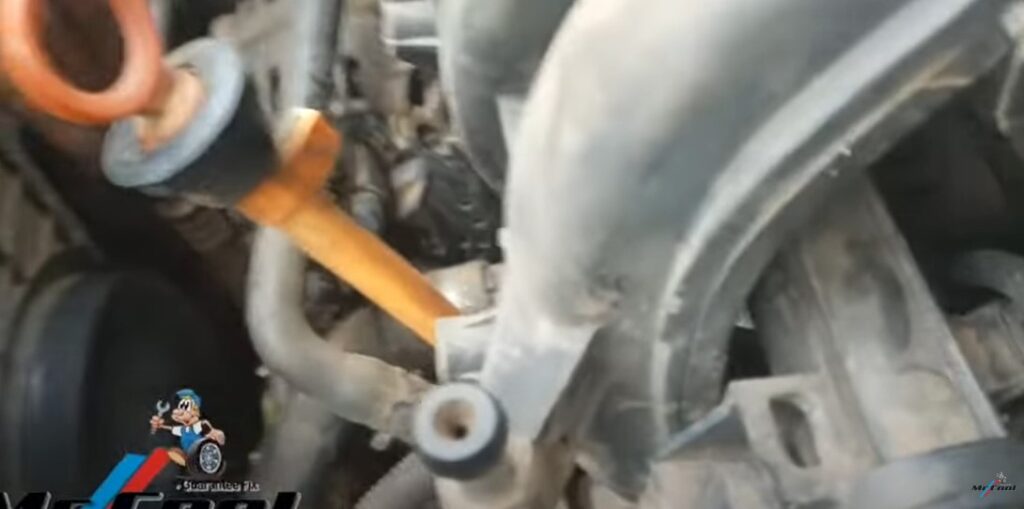
Clogged Cabin Air Filters
The cabin air filter prevents dirt, dust, and other debris from entering the cabin of your car. However, over time, the filter can become clogged, especially if you drive in dusty conditions. This can reduce the airflow to your ac system, making it work harder and decreasing engine power.
The symptoms of a clogged cabin air filter include:
- Musty or stale odors when the ac is on
- Reduced airflow from the vents
- Increased dust or debris in the cabin
If you notice these signs, it’s time to replace your cabin air filter.
Low Refrigerant Levels
The refrigerant is what cools the air that comes out of your ac vents. Without enough refrigerant, your ac system won’t be as effective, and your engine will have to work harder to compensate. Signs of low refrigerant levels include:
- Warm air coming from the ac vents
- Hissing or bubbling noises from the ac system
- Increased humidity inside the car
If you suspect low refrigerant levels, you may need to have your ac system recharged.
Issues With The Condenser
The condenser is responsible for removing heat from the refrigerant, which allows it to cool the air in your car. If the condenser isn’t working correctly, your ac system won’t be able to cool the air effectively, and your engine will have to work harder.
Signs of condenser problems include:
- Warm air coming from the ac vents
- Leaking refrigerant
- Ac system not working at all
If you notice any of these symptoms, it’s best to take your car to a mechanic to diagnose and fix the problem.
Power loss in car engines when the ac is turned on can be caused by several factors, including a malfunctioning alternator, clogged cabin air filters, low refrigerant levels, and issues with the condenser.
By identifying these issues early and taking care of them promptly, you can keep your engine running smoothly and enjoy cool air on hot days.
What Measures Can Be Taken To Solve Power Loss When The Ac Is Running?
Why My Car Loses Power When The AC Is On?
Driving with the ac on is a relief on hot days. However, when a car loses power while running, it can leave you frustrated and uneasy. Don’t worry; we’ll discuss the reasons behind this problem and offer expert solutions.
Checking The Alternator, Battery, And Electrical Connections
A faulty alternator, depletion of charge in the battery, or loose electrical connections could cause power loss in your car. Here’s what you need to know:
- Check the alternator for any wear and tear or damage. A malfunctioning alternator may cause insufficient power supply when the ac is running.
- Check if your battery is fully charged. A low battery charge might result in a weak power supply, leading to power loss.
- Loosening or damaged electrical connections may cause a voltage drop when running the ac. Check all the connections, including the grounds, fuses, and relays, for any signs of damage and make sure they are tightly connected.
Inspecting The Filters
Filters in the car, if clogged or dirty, can impede airflow, increasing the load on the ac system. This problem can cause the car to lose power while running ac. Here’s what needs to be done:
- Check the cabin air filter to ensure proper airflow. If the filter is dirty, get it replaced to prevent power loss.
- Check the engine air filter for dirt and debris. If the air filter is clogged, clean or replace it immediately.
Investigating The Refrigerant Levels In The Ac System
The refrigerant is a critical component of the ac system. A low refrigerant level will cause the compressor to overwork, leading to insufficient power supply or low pressure in the compressor. Here’s what you need to do:
- Check if the refrigerant level is normal.
- Observe for any leaks in the refrigerant system. If there’s a leak, get it repaired immediately.
- Check for the proper functioning of the compressor. A faulty compressor may also result in power loss.
By following the above recommendations, you can quickly identify and resolve power loss issues in your car when running the ac, bringing back the ease and comfort of your travels.
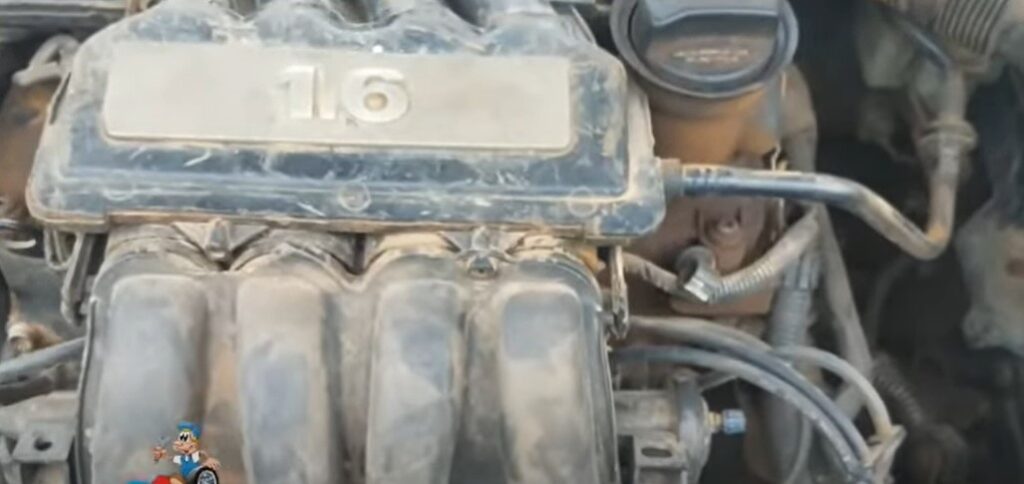
Preventative Measures To Keep Your Car In Excellent Condition
Why My Car Loses Power When The Ac Is On
Have you ever noticed that your car experiences a significant loss of power when the AC is on? This can be a frustrating problem, especially during the summer when AC is a necessity. Fortunately, there are some preventative measures you can take to keep your car in excellent condition and avoid this issue.
Regular Maintenance Of The Car’s Ac, Filters, And Alternator
Regular maintenance of the car’s ac, filters, and alternator is essential to keeping your car in excellent condition and avoiding a loss of power when the ac is on. Here are some key points to keep in mind regarding the regular maintenance of your car’s AC:
- The AC system should be checked at least once every two years by a professional mechanic to ensure that it is functioning correctly.
- The air filters should be replaced regularly to prevent clogging and ensure that the air is flowing freely through the system.
- The alternator should be checked to ensure that it is working correctly, as a faulty alternator can result in weakened AC performance.
Monitoring Refrigerant Levels
Refrigerant is the substance that is responsible for cooling the air in your car’s a/c system. If the refrigerant level is too low, it can result in a loss of power when the AC is on. Here are some key points to keep in mind regarding monitoring refrigerant levels:
- The refrigerant level should be checked regularly, at least once a year, by a professional mechanic.
- If the refrigerant level is low, it may indicate a leak in the a/c system, which should be repaired immediately.
- Overfilling the refrigerant can also result in AC performance issues, so it’s important to ensure that the level is just right.
Cleaning The Condenser
The condenser is responsible for removing heat from the air that is passed through the AC system. If the condenser is dirty or clogged, it can result in a loss of power when the AC is on. Here are some key points to keep in mind regarding cleaning the condenser:
- The condenser should be cleaned regularly, at least once a year, to prevent dirt and debris from clogging the system.
- Using a pressure washer to clean the condenser can be an effective method, but be careful not to damage the delicate fins in the process.
- A clean condenser will ensure that the AC system is working efficiently, preventing a loss of power when the AC is on.
By following these preventative measures, you can keep your car’s ac system in excellent condition and prevent a loss of power when the ac is on. Remember to schedule regular maintenance appointments with a professional mechanic, monitor the refrigerant levels, and clean the condenser to keep your AC working effectively.
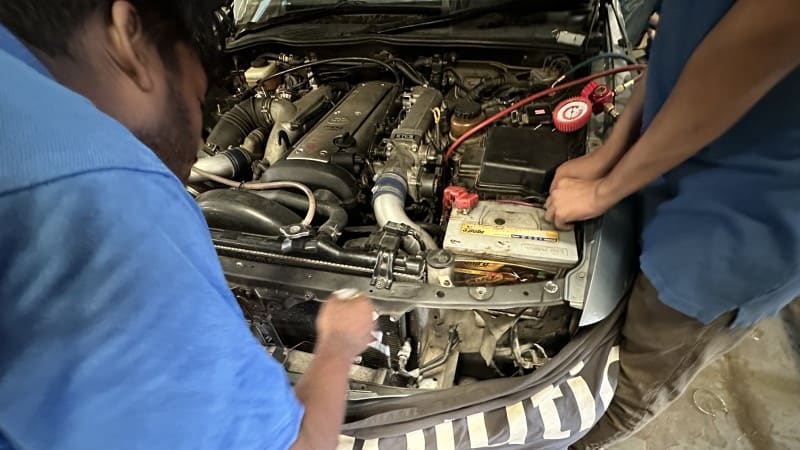
FAQs For Why My Car Loses Power When The AC Is On
Why Does My Car Lose Power When The AC Is On?
The main reason why your car loses power when the AC is on is that the ac system draws power from the engine. The engine has to work harder to keep the rpms up, especially at idle, which can cause a noticeable drop in power output.
How Do I Fix My Car Losing Power When The AC Is On?
To fix your car losing power when the ac is on, make sure your vehicle is running smoothly, perform regular maintenance, and check for any clogs in your air filter. If problems persist, take it to an expert mechanic to get it diagnosed.
Can A Bad Alternator Cause My Car To Lose Power When The AC Is On?
A bad alternator can cause your car to lose power when the ac is on since it is responsible for charging the battery while the engine is running. If the alternator isn’t working properly, your battery may not be receiving the power it needs to operate the ac or other electrical systems.
Get it checked by an expert mechanic to diagnose the issue.
Should I Turn Off The AC To Maintain Engine Power?
If you want to maintain engine power, you should turn off the ac when it’s not necessary. However, it is not recommended to do that constantly since it increases the temperature inside the car, that can cause discomfort to the driver and passengers.
Instead, use economy mode and reduce the use of power features such as headlights or radios when not needed.
What Are The Symptoms Of A Failing AC Compressor?
The symptoms of a failing ac compressor include unusual noises, hot air blowing out from the ac vents, leaking fluid or refrigerant, and poor refrigerant circulation. If you experience any of these symptoms, take your car to a specialized mechanic to diagnose and fix the issue.
Conclusion
The reason why your car loses power when your ac is on is that the ac system takes power from the engine to operate. This means that less power is available to keep the engine and other car systems running.
The issue is more pronounced in smaller and less powerful cars since they have smaller engines that get easily overloaded when the ac is on. However, it’s essential to keep in mind that this is not a problem exclusive to small cars – it can happen in any car.
Keeping your car maintained, checking the battery, the serpentine belt, and the voltage can help you avoid this issue. You can also switch to a more efficient ac system and keep your windows closed while driving to keep your car cool without overloading the engine.
By following these tips, you can enjoy a cool car ride without encountering problems with power loss.
